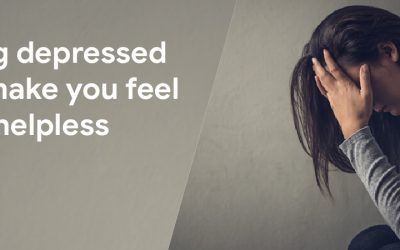Snoring
Snoring is a common sleep disorder, commonly encountered in middle-aged individuals and may lead to a serious health problem called obstructive sleep apnea (OSA). If a snorer is having un-refreshing sleep, feeling of choking, recurrent awakening from sleep, daytime fatigue, and change in personality, he/she has crossed the line of demarcation between snoring and potentially life-threatening disease.
Snoring is common, especially among older people and people who are overweight.
What Causes Snoring?
Snoring is the sound you make when your breathing is blocked while you are asleep. The sound is caused by tissues at the top of your airway that strike each other and vibrate.
During waking hours, the tissues in the throat and upper airway are open, and air enters the lungs easily for most people.
During sleep, the soft tissues and tongue relax. This can partially block the airway. If the air coming in and out of the airway meets resistance, vibration can occur, causing snoring.
When Snoring Becomes a Problem?
Snoring by itself is not generally considered harmful. If there is no accompanying lapse in breathing, then snoring does not have a major effect on sleep quality or daytime sleepiness. However, snoring is often accompanied by an underlying condition. An estimate shows that 24% of women, 40% of men, and 10% of children snore regularly
How Snoring Affect One’s Health?
The reason behind OSA can be attributed to the fact that during sleep resistance to airflow is increased at certain areas in the upper respiratory tract. These areas may be further compromised by a sleep-related reduction in muscle tone and the effects of gravity related to being in the supine position. As a result, ventilation may be decreased (hypopnea) or absent (apnea) for several seconds until upper airway muscle tone increases, allowing the resumption of normal ventilation.
Snorers reported decreased sleep time, more lack of sleep days, and unintentional falling asleep days than non-snorers. Snoring is associated with significant negative sleep pattern behaviors as well as coronary artery disease and depressive disorders.
Is Sleep Apnea and Snoring the Same?
Sleep apnea is a sleep breathing disorder characterized by repetitive pauses in breathing during sleep. This happens as the blood oxygen level decreases and brain awakens the individual with loud gasp. Sleep apnea is associated with snoring as both cause restless night.
How Snoring Affects Partners
Partner does not get enough sleep and it may lead the partner to tiredness , irritation and reduces ability to concentrate. Unfortunately snoring is one of the reasons for divorce nowadays. Chronic sleep deprivation may lead to risk of high blood pressure, heart diseases , kidney disease , depression and weakened immune system. Don’t let snoring come in between you and your partner.
How to Manage Snore?
Behavioral modifications such as weight loss, change in sleep position from supine to lateral and avoiding of alcohol, hypnotics, and narcotics before bedtime can help manage snoring. Definitive modalities include continuous positive airway pressure (CPAP), surgery to enlarge upper airway, and oral appliances. Prevalence of OSA is expected to further increase due to ageing of societies and the global obesity epidemic.
Oral appliances are another simple, efficient and cost-effective alternative of treating OSA besides CPAP.
An oral appliance is an oral device that is inserted in the mouth to modify the upper airway for the treatment of snoring and obstructive sleep apnea.
They basically allow the lower jaw and tongue to remain in a forward position during sleep, thereby preventing them from falling back and obstructing the airway. Some appliances such as palatal lift appliance elevate the soft palate and prevent its vibration which is the most frequent cause of snoring.
Anti snore Devices:
Antisnore chin strap – neoprene strap that fits under the chin and wraps around the sides of the head. These devices hold the wearers mouth closed as they sleep.
Nasal strips – spring like bands that lift the nasal passages and helps opening them wider for improved air flow. Disposable strips and easy application over the nose.
Anti-snore nasal dilators – improves airways during sleep and ease breathing through your nose and reduce snoring. Also useful for sleep apnea.
Mouth guard piece– anti snoring mouth guard work by moving the jaw forward in order to increase the size of the upper airway thus reducing snoring.
Conclusion:
The social embarrassment and distress of loud snoring is now motivating middle aged individuals to request professional help from healthcare professionals for betterment from snoring and sleep apnea. If you sleep with someone who snores you are in a position to help them get it checked out by doctor and recover.














